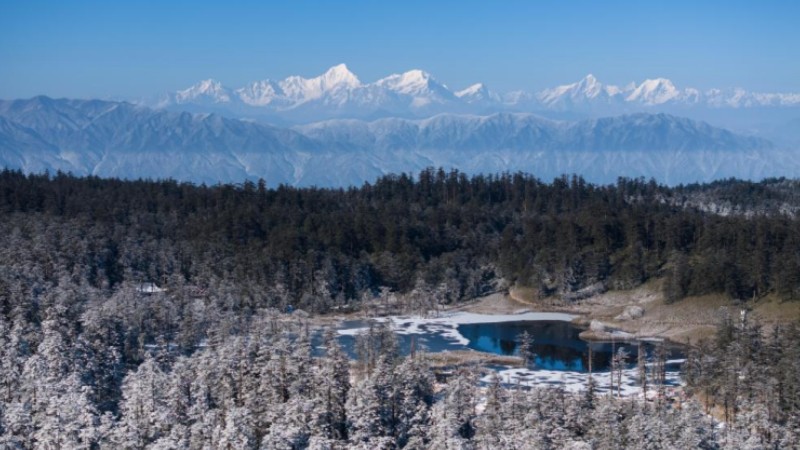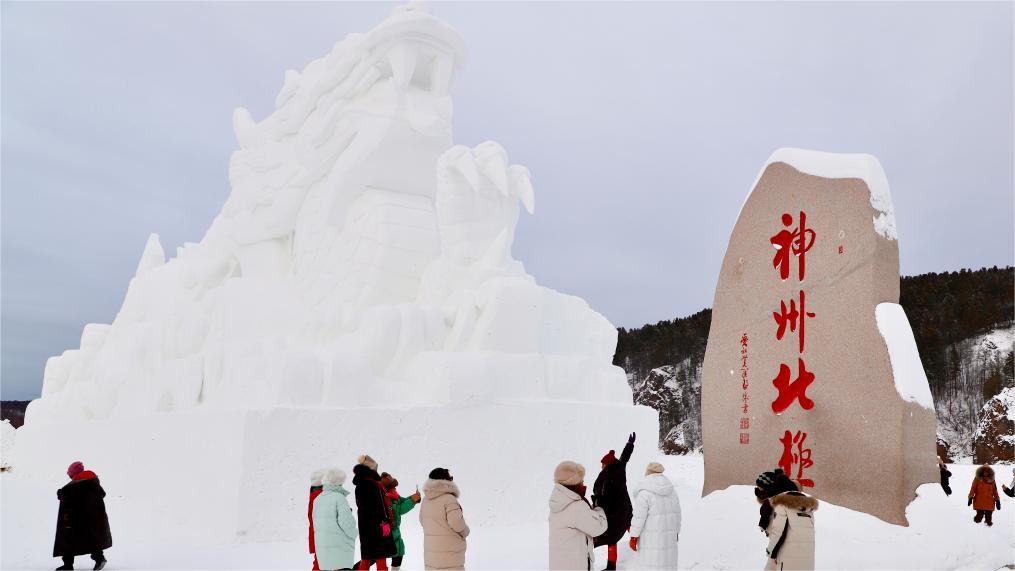2024 could be hotter after record-breaking cold wave in winter 2023
After multiple Chinese cities in December witnessed the strongest cold wave for that month since 1961, climate scientists said that since 2024 is the second year of El Nino, it is likely to not only be hotter, but also see more frequent and more powerful extreme weather events.
Earlier in December, Beijing broke the record for the longest consecutive low temperatures for that month since 1951, while Central China's Henan experienced the coldest mid-December since 1961. Additionally, blizzards in Yantai and Weihai in East China's Shandong Province caused the accumulated snow depth in both cities to exceed historical records.
Since mid-December, the lowest temperatures at 78 national meteorological observation stations have dropped below the historical extremes for the month. At 12 observation stations in Shanxi, Hebei, Inner Mongolia, Hunan, and other areas, the lowest temperatures have exceeded the historical extremes since the stations' establishment. The regional average temperatures for this period in North China, Northeast China, and Inner Mongolia are the lowest since 1961.
The Shandong peninsula region experienced a "cold flow blizzard" in December, with the accumulated snow depth in Wendeng, Weihai, at one point reaching 74 centimeters, surpassing the historical extreme snow depth for Shandong set in 2005, while the maximum snow depth in Yantai reached over 50 centimeters.
During this December cold wave, the country's land area experienced a strong temperature drop of over 10 C across approximately 3.27 million square kilometers of land, accounting for 34 percent of the total national land area. The Central Meteorological Observatory has simultaneously issued warnings for blizzards, cold waves, and freezing, which portrays the extreme nature of this weather event, Sun Shao, a researcher at the Chinese Academy of Meteorological Sciences, told the Global Times.
Due to the combined effects of rising global temperatures, increased greenhouse gas emissions, reduced Arctic sea ice and unstable polar vortexes, the average winter temperature in China is increasing. However, the probable occurrence and extremity of cold waves have not decreased, and their impact range has also expanded, Sun noted.
Considering the impact of El Nino, Sun predicted that the probability of abnormal or extreme weather events occurring in China is significantly higher than a normal year. This has not only affected the current winter season, but also included the spring and summer seasons in 2024.
Zhang Tao, chief forecaster at the China Meteorological Administration, also said that the country can expect extreme events such as high temperatures, heavy rain, drought, typhoons, severe convective storms, cold waves, sandstorms, and heavy fog in 2024, but this doesn't mean they will increase every year. The current consensus in the academic sector is that the number and extremity of these events will follow a spiral-like upward trajectory with periodic fluctuations, so it is still uncertain whether extreme weather events in 2024 will outnumber those in 2023.
Asked to explain the recent strong cold wave in the context of global warming, the climate scientist agreed that the concept of global warming and the occurrence of extreme cold waves do not contradict each other.
Sun explained that global warming is a long-term trend, and within this trend cold winters and warm winters are interannual fluctuations, and record-breaking cold waves are extreme events. These three phenomena have significant differences in terms of time and spatial scale.
"Even after experiencing this extremely intense cold wave event, by the end of February 2024, if we compare the national average temperature from December 2023 to February 2024 with the average value from 1991 to 2020, it is still possible that this will have been a 'warmer winter,'" Sun added.
As the Arctic is warming and the westerly winds are weakening, this has led to a series of interconnected effects that make it easier for cold air to move southward, resulting in more frequent cold events such as cold waves. In other words, while the overall temperature is warmer, the fluctuations between cold and warm are becoming more pronounced, Zhou said.
Will extreme weather become the new normal in the future? Zhou Bing from the National Climate Center says that it is already happening globally due to climate change. Extreme weather events are becoming more frequent, widespread, intense, and simultaneous.
In July, the World Meteorological Organization declared that El Nino conditions were forming in the tropical Pacific Ocean for the first time in seven years. El Nino, which typically lasts nine to 12 months, typically leads to stronger monsoons in southern South America, the southern US, the Horn of Africa and parts of Central Asia, leading to increased rainfall, and the opposite effect in Australia, Indonesia and parts of South Asia, causing severe droughts.
Historical records show that during an El Nino year, some parts of China will experience higher temperatures and even extreme drought in some areas, and the possibility of floods will be high.
The major floods in the Yangtze River basin in 1998 and 2006 both occurred in the second year after the development of El Nino, and if this winter El Nino event meets the criteria of a strong event, then the probability of flooding in the Yangtze River basin in the summer of 2024 is relatively high, Zheng Fei, from the Institute of Atmospheric Physics, Chinese Academy of Sciences, said.
Meanwhile, Sun said countries, including China, should take measures to alleviate the negative impact brought by extreme weather, such as optimizing infrastructure and water resource management.
Zhou suggested establishing an early warning system and including climate change prevention into the national security system so as to enhance the country's overall capability to adapt to climate change.
Photos
Related Stories
- People stick to posts despite harsh winter weather in China's northernmost city
- Winter scenery across China
- Temperatures plunge to historic lows as severe cold fronts impact most of China
- Winter romance: Creative young Chinese man makes rose with snow
- Winter scenery of Summer Palace in Beijing
- California, China offer exemplary climate policies for public health benefits
Copyright © 2023 People's Daily Online. All Rights Reserved.









